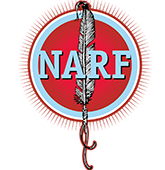American Indian and Alaska Native children twice as likely to live with grandparents
A new analysis of American Community Survey (ACS) data from 2018 to 2022 finds that a sizeable share (23.3%) of American Indian and Alaska Native (AIAN) children under age 18 lived with a grandparent, or nearly twice the percentage among all U.S. children (12.4%). Among AIAN children who lived with a grandparent, the majority also … Read more
